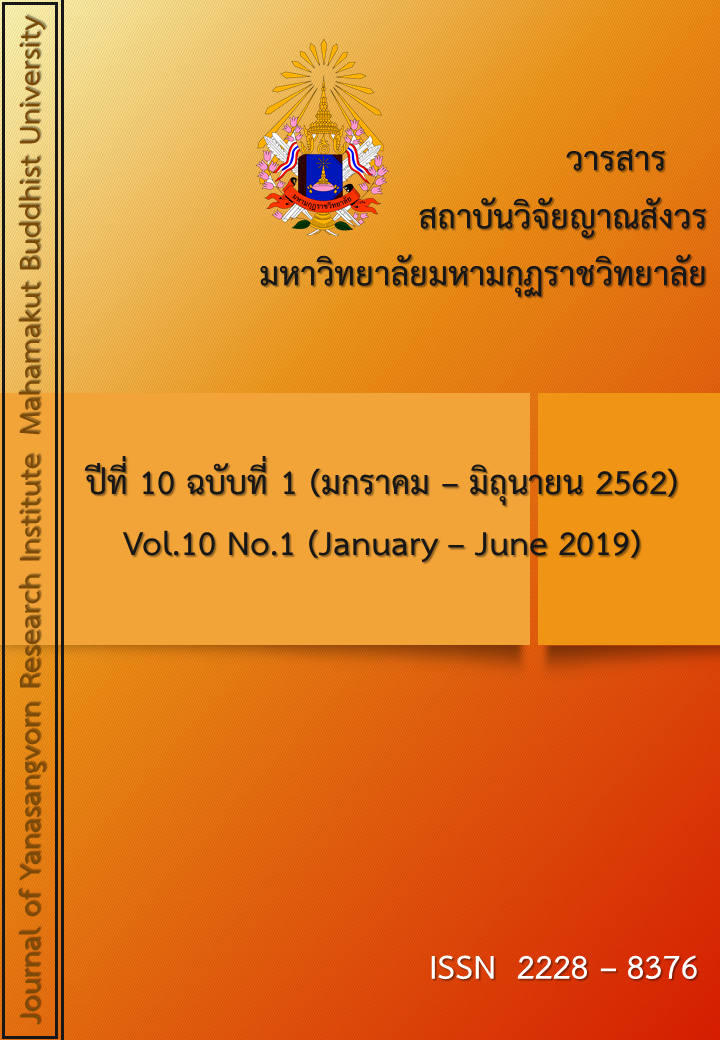THE FACTORS OF CAUSAL RELATIONSHIPS WHICH INFLUENCE ON THE COMPETITIVENESS OF THAI AUTO PARTS MANUFACTURERS
Main Article Content
Abstract
This dissertation aims to study THE FACTORS OF CAUSAL RELATIONSHIPS WHICH INFLUENCE ON THE COMPETITIVENESS OF THAI AUTO PARTS MANUFACTURERS. The research objectives are (1) to study the influence of factors which effect on the Competitive Advantage of Thai auto parts manufacturers. (2) To analyze a consistency between the empirical data and research hypothesis. Mixed method was used in this study. That is, both quantitative data which acquires for knowing the basic data, and qualitative data which acquires for knowing the insight data from entrepreneurs were utilized by explaining as well as describing context. The qualitative research was conducted by 5 in-depth interviews with executives. The quantitative research is empirical research, in which the questionnaire was used as a tool to collect data from the sample ie. 360 of Thailand steel companies. The statistical scales used in the research were descriptive statistics, frequency, percentage, standard deviation, hypothesis testing and Structural Equation Modeling (SEM) models through Confirmatory Factor Analysis (CFA) and Path Analysis The research found that, the influence of factors which effect on the Competitive Advantage of Thai auto parts manufacturers found that Competitive Advantage is influenced by, Innovation Advantage, Entrepreneurial Marketing Orientation and Intellectual Capital by the following factors, 0.45, 0.32 and 0.17, respectively. In addition, Competitive Advantage was also influence to the Performance of Thai auto parts manufacturers too. Analyzing a consistency between the empirical data and research hypothesis found that the Competitive Advantage of Thai auto parts manufacturers fit of measurement model, also showed that adjusted goodness of fit as indices = 112.63, df= 103, /df = 1.093, p-value=0.243, GFI = 0.97, AGFI = 0.94, NFI = 0.99, NNFI =1.00, CFI = 1.00, RMR = 0.010 and RMSEA = 0.016
Article Details
References
ศูนย์วิจัยเศรษฐกิจและธุรกิจ ธนาคารไทยพาณิชย์ (2561). ข่าวศูนย์วิจัยเศรษฐกิจและธุรกิจ สืบค้นจาก https://www.ryt9.com/s/iq03/2875586
Cavusgil, S. T., Zou, S., & Naidu, G. M. (1993). Product and promotion adaptation in export ventures: An empirical investigation. Journal of International Business Studies, 24(3), 479-506.
Chang, N.J., & Fong, C.M. (2010). Green product quality, green corporate image, green customer satisfaction, and green customer loyalty. African Journal of Business Management, 4 (13), pp. 2836-2844.
Kohli, A. K., Jaworski, B. J. & Kumar, A. (1993). MARKOR: A measure of market orientation. Journal of Market Research, 30(4), pp. 467-477.
Kotler, P. (1997). Marketing management: analysis, planning implementation and control. (9th ed). New Jersey: Asimmon &Schuster.
Porter, M. E. (1990). The Competitive Advantage of Nations. London: Macmillan. (1998). Cluster and the New Economics of Competition. Retrieved October 10, 2006, from
Website:http://www.wellbeingcluster.at/magazin/00/artikel/28775/ doc/d/porterstudie.pdf


